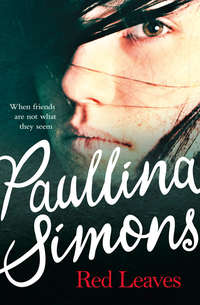
Полная версия
The Girl in Times Square
Did Amy live a life that was more troubled and troublesome than Amy let on, coming from white, middle-class, peaceful Port Jefferson? Did Amy have secrets she kept so well? Or was Lily less interested than she realized? She didn’t know and didn’t want to know.
How long had Lily not been able to speak normally to her mother? When did her mother so thoroughly and completely check out of Lily’s life? Lily didn’t know and didn’t want to know. Ten years ago after that blasted emergency ulcer surgery? Nine years ago in Forest Hills when she fell out of a chair (!) in the apartment and broke her arm, and her father said, “Mommy is fine, she’s fine, don’t worry, she just fell.”? Lily thought it was an aberration, a Polish accident, it was so long ago. But there had hardly been a mother since then. What had her mother been doing for nine years?
One more layer of bottomless ignorance.
10
Things in the Closet
It was five in the morning, the sun was barely up, while Allison, who was up, was up seething.
She never called, never, Allison thought, as she meandered from her room to the kitchen, wondering if she wanted something to eat. She didn’t even call when Allison sent her half her rent plus a little extra. Since Amy went missing, the entire $1500 has been on Lily’s shoulders, and Allison wanted to help her daughter, who didn’t even call to say thank you! Not even a thank you for sending nine-hundred dollars, as if the money were a given, a birthright.
Typical of her. Lily always took everything for granted, as if it all were just handed down on a large platter for the youngest child. Allison heard George snoring behind the louver doors of his small room. Hear that? He sleeps as if he doesn’t have a care in the world. Nothing fazes him. Not my ill health, not my depression, not my unhappiness, nothing. He doesn’t need me either.
She glanced at her bills, in a pile on the desk, at the unopened packages from Amanda and Anne. They kept sending those damn books. You’d think they’d call once instead.
Nobody calls.
Oh, Andrew calls every week, to say the quickest hello to her and to then to speak for half an hour to his father. Andrew, who’s got no time for anyone, speaks to George for half an hour every week! They pretend they’re talking politics, hockey, but what they’re really doing is ignoring her. And even Andrew has been calling less and less lately.
She went into her bathroom, and examined her face in the mirror. It was bloated and swollen. She examined her graying teeth (because of all the smoking and coffee) and her yellowing skin. She looked for the cranberry juice. She wasn’t feeling well. The cranberry juice would soothe her. Make her feel better. She poured herself a drop of cranberry juice into a highball and stared at it. All she wanted was relief from being awake at dawn. She couldn’t sleep, she didn’t want to eat, and there was nothing at all in the whole world she wanted to do. All she wanted was relief from this.
She went to her closet that was piled high with clothes on the floor, winter clothes that she no longer wore because they were in Hawaii. They weren’t needed the same way she wasn’t needed. She could be lying in a heap in the closet. Her hand deep down inside the sweaters, she rummaged for something, down below, layers hidden, to the right and at the bottom. It wasn’t hard to find. She struggled a bit and then pulled out a gallon, half-empty, of Gordon’s gin. Before Allison pulled it out, she felt around the bottom to make sure she still had another full gallon left. She did.
She brought it to the countertop where her cranberry juice waited for her. She stared at the highball for a moment, and at the bottle in her hands. She decided the hole inside her was too big today to fill with such a little glass. Tomorrow she would get herself in control. Tomorrow she could sleep past five, and maybe go for a walk with George … though what for? Really, what for? Why should she get herself in control even tomorrow? Like she had somewhere to go.
She unscrewed the top of the gallon of gin and with shaking hands lifted it to her mouth. The hands could barely hold such a heavy bottle. She opened her throat and poured the gin in, barely even needing to swallow. The bottle was much lighter, that was good. And her heart was much lighter. That was good too. So good.
She had to put the bottle away before she lost—
11
Spencer Patrick O’Malley and Lilianne Quinn
To get out of the heat of her broiling apartment, Lily was sitting in air-conditioned Odessa at eight on a Sunday evening having dinner when Spencer walked in. The diner was nearly empty, but she was hidden in a booth a few tables away from the front door and he didn’t see her. He went to the cash register, where Jeanette helped him. He was in jeans, and was wearing an incongruous denim jacket. Lily was nearly naked, she was so hot. Looking at his jacket only made her hotter. She didn’t want him to see her, so she slid down in the seat and surreptitiously watched his exchange with Jeanette.
He ordered a turkey club.
“Will that be to go or to stay, Detective O’Malley?”
Jeanette was twenty-nine and a waitress for eleven years.
He said it would be to go.
“Why don’t you stay for once? I’ll be glad to take care of you.”
And she giggled!
He said no thank you, just a turkey club, no mayo, a large coffee, a large Coke, and a cup of coffee while he waited.
Jeanette, all breasts and batty eyes, said she would be right back and went to the kitchen. Spencer turned away from the counter to look at the patrons in the diner. Lily slid down further in her seat.
He saw her.
She sort of smiled and waved, and closed her sketchbook as he walked over. She had been sketching the empty countertop of the diner on a Sunday night with herself not Jeanette standing behind it.
“Hello, Miss Quinn,” he said.
Lily said hello.
“Jeanette, I’ll have that coffee now, while I wait,” he said to the waitress, who brought him a cup, eyeing Lily with extreme displeasure as Spencer sat down in the booth across from her.
Lily asked if he was on duty today.
“No, I try not to work weekends,” he said.
He should have looked better for not working weekends. He looked wiped out, like he hadn’t slept in days. He was unsmiling until he surveyed the food in front of Lily—a BLT, a Greek salad, a slice of cheesecake, Jell-O, and bread pudding.
“Hungry today?” He smiled slightly.
A little sheepishly she told him she never knew what she was going to feel like until it was right in front of her.
Jeanette brought Spencer his brown paper bag, placed it in front of him and said, "Here’s your stuff, Detective O’Malley. Would you like me to ring you up now?”
Spencer said, “On second thought, I will stay and have it here. Could you bring me some mustard, please?”
They ate their food quietly. She was a bit more chatty than he. She asked him why the jacket in the heat and Spencer pulling it open and revealing the holster with a weapon in it, said, "I prefer not to brandish the Glock when I’m off duty. Makes people nervous."
She asked why he carried a piece if he was off duty.
He said, “The gun may be smaller, but I’m required to carry it at all times. Off duty is just for pretend. To deceive us into believing we’re fairly compensated for our trouble. We’re never off duty. New York City would go broke if they had to pay us for 24/7 of service.”
She asked if he lived around here, if this was his local diner. He seemed to be so well-known by Jeanette—though Lily didn’t say that.
“No, I live on 11th and Broadway.”
Oh, she said, that’s so close to Veniero’s! that sublime bakery.
“I wouldn’t know. Never been there. Don’t care much for sweets.” He eyed her dessert buffet. She shrugged, and said that she did care a little bit for sweets.
They finished eating and paid their separate checks. Jeanette seemed pleased by the separateness. Spencer opened the door for Lily, and Lily was pleased by that.
“You spell your name oddly,” Spencer said, as if making a statement of extreme importance and fascinating fact.
“Oddly, why?”
They were walking back from Odessa. It was dark now and warm; they were full. Spencer slowed down a bit, Lily slowed down a bit, they were sauntering. From a bar they passed on Avenue A, loud music blared. Bruce Springsteen was out in the street/walking the way he wanted to walk. Spencer hummed part of the song before he answered. “I don’t know. Lily-Anne. I’ve heard of Lilian with one ‘el’ and Lillian with two. But Lili-ANNE?”
Lily couldn’t tell if he was teasing her, she didn’t know whether to tease back or proceed with solemn caution. In the end she opted for caution. “I was born sixteen years after my brother was born, and my mother, having forgotten that she already named my oldest sister Anne, wanted to name me Anya, or Anita, or something like that. My father said they already had an Anne, but my mother didn’t see his point. They didn’t have an Anita. My father asked if they were Hispanic. That’s when my mother came up with Anya. No Anya, my father said. No Anastasia, no Anika! They had an Anne. No more Anne. So my mother’s valiant compromise, as she calls it to this day, was to name me Lilianne. So she could still get that Anne in there. I don’t know how my dad agreed.”
Spencer smiled and when he looked at her, he looked at her differently, with more familiarity. “I know how he agreed. The way my father agreed. When I was born my mother put on my birth certificate Patrick O’Malley, and never told my father. She called me Baby for the first three months of my life, so my father never even knew the truth, and never asked, God bless him, until I started to smile.”
“You didn’t smile for three months?”
“Would you smile if you were called Baby for three months?”
“Good point. What was wrong with Patrick?”
“They already had a Patrick.”
Now it was Lily’s turn to look at Spencer differently. “They named you Patrick and there already was a Patrick?”
“Yes.”
“How many of you were there? Please tell me more than two.”
“Eleven.”
Lily’s eyes widened. “You might want to forgive your mother,” she said. “Eleven kids.”
“Who said I didn’t forgive my mother?”
“So did she nickname you Spencer for Spencer Tracy?”
“Correct.” Again looking at her with friendly approval.
“Spencer is a nice Irish name.” She stared at the pavement.
“Quinn is a nice Irish name. Why does your friend Paul call you Harlequin?”
Lily was discomfited. “Once he saw a clinch novel in my room. Has never let me forget it.”
“Oh, yeah? My sisters read those and never stop torturing me. According to them the only way I’ll get hitched is if I become more like the man from one of those novels. From which series was your book? Temptation or Intrigue?”
“Blaze,” said Lily, flushing with embarrassment and then laughing when she saw Spencer’s amused face. They were at her apartment, and she had a tinge of regret that the stroll was over so soon.
“So why did your mother like the name Anne? Who is Anne?” “I don’t know. My mother just likes that name.”
“Likes that name a lot,” Spencer said thoughtfully.
Lily glanced at him from the top of her stoop. “Detective O’Malley,” she said, teasingly, “I’m sorry to inform you but my mother’s preference for the name Anne is not one of your MP investigations.”
“Don’t be so sure. What about your other sister? She’s just plain Amanda.”
“That was my mother’s continued subterfuge over my father. AmANNEda.”
Spencer grinned. “Your brother? Was he spared?”
“ANNE-drew.”
Spencer laughed. And then he said, “Oh, of course—your brother is the Andrew Quinn, the congressman for the first district?”
“Yes. The Andrew Quinn.”
“Well, congratulations. He was just re-elected last year, wasn’t he? I remember it vaguely. That was a squeaker.”
“You can credit me for that squeaker, I campaigned for him. Me and Amy. And it was a landslide compared to his first election against Abrams.”
She opened her front door, while he remained at the bottom of the stoop. “Very, very interesting, Lily Blaze Harlequin. Well, good night. I still say you might want to look into your mother’s regard for the name Anne.”
“Thank you, Detective O’Malley, in my copious free time I’ll do that.”
“Miss Quinn, you can call me Spencer.”
Lily had a smile on her face the entire five flights of stairs.
12
A Little Rented Honda
Lily was having a rare and desultory conversation with her mother and she could tell it was desultory by the amount of quick, sloppy black circles she was dashing off on her sketchpad, wearing down her nub of charcoal, getting black all over her fingers and her quilted bedspread. She had just come out of her bath—she had been taking baths for a while now, she found herself too tired to stand in the shower.
Now she was feeling relaxed and sleepy, but her mother was keeping her on the phone. Lily was on her new comfy bed, with the sky-blue curtains behind her tied in bows, billowing in the hot breeze. Black circles, black. Blah blah blah. Then her father came on the line and said, “Did your mother tell you she drove the car into a ditch?”
There was silence.
“Can you get off the phone?” said Allison. “Can’t you see I’m talking to my daughter?”
“What ditch?” said Lily incongruously.
“Oh, just a little ditch, by the house,” said Allison.
“Your mother means a ravine, Lil. She crashed the car into a ravine, left it there, and now has to go to court to explain to the judge why she would leave a perfectly good Mercedes in a ditch without notifying either a tow company or the police.”
Allison had nothing to say to that.
And the only thing Lily said to it was, “Is that the first time Mom drove the car into a ditch?”
“Yes, it was an aberration,” Allison said.
“Oh, yeah?” said George. “Tell that to the stop sign you plowed through and knocked over on Wailea Drive last month.”
“It doesn’t count,” said Allison. “That was a little rental car. A Honda.”
“Your mother is on a lot of medication, Lily,” said George, realizing perhaps how all this was sounding. “Sometimes it knocks her out. Makes her shaky behind the wheel.”
Lily called back the next morning when she was pretty certain her mother was asleep. “Papi,” she said, “You can’t let Mom drive a car. The first time was a stop sign, the second time was a ditch, but the third time is going to be a woman with a baby carriage.”
“I know, you don’t think I know? I know! Who lets her? I don’t let her. I tell her all the time I’ll drive her anywhere she needs to go. What else do I have to do? But she says she wants to run out for fifteen minutes to the drug store. And Lily, think about it, what am I, her policeman? Did I retire so I could police your mother? She is a grown woman. She knows when she should and shouldn’t drive.”
“I don’t think she knows. I don’t think she should drive at all. At the best of times she’s a bit … erratic.”
“I don’t know this? I know this better than you, daughter.”
“What’s wrong with her, Papi?”
“Ah. You know your mother. She loves her histrionics. She loves for everything to be about her. Look at me, I’m sick, I’m depressed, I’m not well, I’m going to court. What a sham it all is. There is nothing wrong with her.”
Lily waited. “Nothing?” she said.
“There is one thing wrong with her. She keeps falling down. She can’t walk down the one step to the sunken living room, or up one step to the front door to get the mail without falling down. You should see her legs. You wouldn’t believe what they look like. And her arms. They’re covered with black and blues. You almost can’t imagine how terrible and bruised her legs look. And your mother has such nice legs, as you know.” George chuckled. “If someone didn’t know any better, you’d think she was a battered wife.”
Listening, falling in her sadness for her mother, Lily said, “A person who can’t walk down one step into the sunken living room should not be driving.”
“Don’t tell me. Tell her.” He paused. “She’s sleeping now. Is that why you called? But you know, she doesn’t go out that often. Not often at all. Maybe once a week. She suddenly rushes out. And usually it’s after a good week.”
“‘Good’ meaning … ?”
“Meaning, she’s not screaming, or upset, or incoherent. She even goes walking with me. Then suddenly she rushes out, and things turn bad again for a few days, for a week. I think those meds she keeps taking are no good for her.”
“Papi?” Could Lily get the words out? She took a deep breath. “Something is wrong with mom. She … could she be …”
“What?”
Lily said nothing. She was such a coward.
“What? Drinking, you think?” George said finally.
She let out her breath. “Yes.” What relief. Yes! Drinking. And she didn’t even have to say it.
“No, no. I don’t think so.”
Lily waited. George waited. “Papi, could she be running out of alcohol and then driving to go get it?”
“I don’t think so. She comes back with bags of stuff: shampoo, soap, lotions, bleach, her pills. I carry the bags in for her. I know what’s in them. There is no liquor in the bags.”
“Okay, Papi.”
Lily thought on the way to work that she hoped Spencer was a better investigator than her father, because otherwise Amy was doomed.
13
Lily and the City of Dreams
One late Friday night Lily was wandering the streets of the East Village looking for the posters they’d hung up of Amy, wandering from Avenue C, Avenue B, Avenue A, First Avenue, Second Avenue, Lafayette, and on Broadway, in front of Dagostino’s she ran into Spencer who was with a thirtysomething woman, her arm through his. He was casually dressed in slacks and an NYPD light jacket, the woman was wearing a skirt and blouse. Her hair was long and brown. She was tall. Pretty.
Lily’s mouth had opened into a gleaming Hi! she had been so happy to see a face she knew, and then she saw the threaded arms and didn’t know what to do or say. Spencer said Hi, Lily, not gleaming, and—
Lily felt so unbearably awkward she wanted magic powers that would let her fall through the sidewalk and down into the firepit of hell. On a Friday night she runs into Spencer, grins like an idiot, and now the smile is cemented on her face, and she doesn’t know where to look, and how in the devil’s name is he going to introduce her, a lumbering oaf—
Spencer said, “Mary, this is Lilianne.”
That’s all he said. Lily shook hands with Mary, who smiled politely, so well-mannered, so groomed, like a smart poodle.
“Nice to see you,” said Lily, detaching herself. “Listen, gotta go, sorry,” waving and running into Dagostino’s to hide in the frozen food section. Oh, God!
After an unreasonable time in the French Fries and the Lean Cuisines, she left the store, and meandered back home, so absent-minded she nearly walked through Tompkins Park.
She was disgraced. She couldn’t think straight. She bumped into Spencer while by herself on a Friday night! What kind of a loser was she, roaming the streets of New York at midnight on a Friday? She was loser number six, that’s what kind, Amy knew six deadbeats, of which Lily was the last.
But also … while alone on a Friday night, she accidentally and surprisingly—even to herself—felt joy at seeing Spencer, a familiar face, a familiar person, and less joy when she realized he was not alone.
It was days later when Lily finally calmed down long enough to resign herself to the slight aching left by the memory of the female arm through his male arm. But not because … no, not at all because … it was nothing like that, he was too old and not her type, and she was too young and not his, obviously. She knew herself, she knew she was telling the truth—there was nothing untoward in her aching. It wasn’t because of him in the particular. It was seeing the warm female flesh through warm familiar male flesh—the companionship of coupledom that wounded Lily. They were all around her, she realized belatedly—on Friday nights, couples, arm in arm, walking through Greenwich Village in the summer, happy to be alive. And even Spencer, harassed, glum, overworked Spencer, who almost didn’t seem like he was a man, and yet, decidedly—a man! Not a detective, not a cop, not a professional, but a man, walking with a woman, who was touching him, and he was not objecting. That was the aching in Lily. The wanting of the wanting to feel. The envy and piercing sadness at the realization that someone, who she thought was her kindred spirit in this—who she also didn’t think felt—felt.
Rachel, ever at the ready as a matchmaker, promptly fixed Lily up on three dates, crash and burn all. One barely spoke English, here from Morocco on a student visa wanting to become a professional basketball player—this at barely six feet tall. Even Lily had more sense.
One was a senior management accountant with Deloit. He was thirty-one, short and square, but wore clothes that were too hip for him, and drove a flashy car and hung out in bars trying to pick up younger girls. He spent the entire dinner advising her to change her choice of future profession from “something in art” to something more sensible, and take a course to become middle management for a large brokerage firm. (“That’s where the money and the security is.”) Lily was surprised to find herself thinking how different Spencer seemed from this man, how sturdy and un-middle-aged, even though there was something slightly grave about Spencer, as if he walked around carrying the feeling that life had already passed him by.
The last one was a mixed-race kid from Coney Island, who was adorable, but was obviously on drugs from beginning of the date to the end, and possibly went into the men’s room to take another hit of whatever he was on (coke? heroin?) during their dinner on bar stools at a cheesy Mexican take-out in Clinton Hill. He was disjointed and could not focus on anything she was saying, which admittedly wasn’t much. But was he ever cute!
Lily asked Rachel not to set her up on any more dates. Rachel thought she was being too picky. “You’ve built a wall around yourself, a forcefield, and you’re not letting anyone near.”
“Thank you, doctor.”
“You can’t let Joshua have so much power over you, Lil.”
“He doesn’t have any power over me,” Lily protested.
But Paul, who had heard about their exchange, called the following day. “He has all the power. You gave it to him during your relationship, and you’re giving it to him still. Keep going out with the boys, be happy.”
Lily had gone out with the boys, but how could she be happy?
She felt something slipping away from her, but didn’t know how to fix it because she didn’t know what it was.
Just to show what kind of power he had over her, Joshua called, hemmed and hawed, asked a few perfunctory questions, and then asked for his TV back. Apparently Dennis’s broke. He came over for five tongue-tied minutes and took his TV! He asked Lily to open the door for him, and she crossed her arms and refused.
Paul stopped calling her Harlequin. She missed that. He stopped calling her as often. She missed that, too. He said he was busy, Rachel said she was busy—to think that Lily would care if Rachel was busy! But she did care, she did. Lily couldn’t help feeling a prickle of judgment coming from Paul and from Rachel, characterized by their uncharacteristic and displeasing aloofness—judging Lily for losing Amy and not knowing where she put her.








